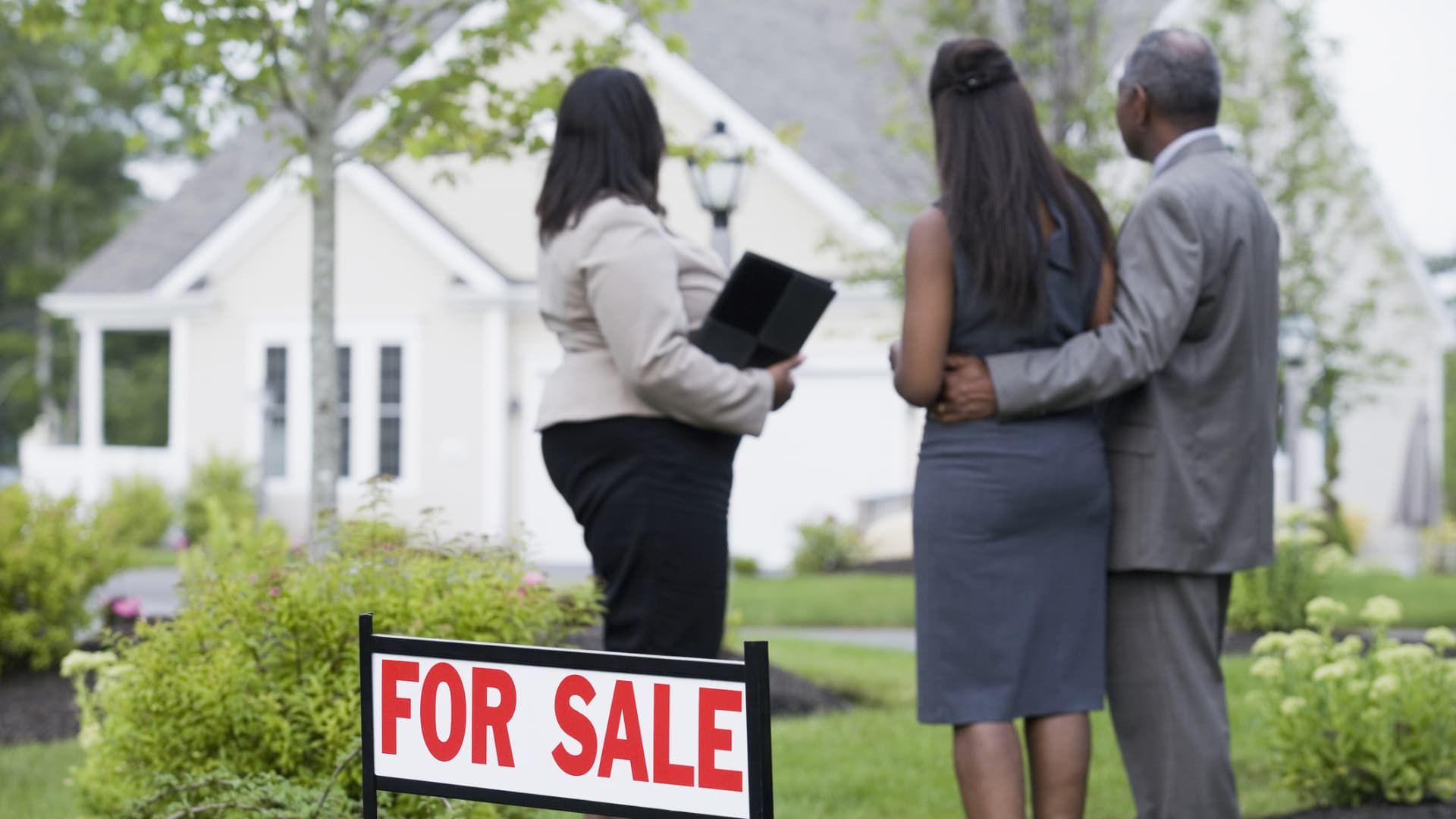Owning a home is one of the key ways to build wealth. But for aspiring Black homeowners, that can be a difficult milestone to reach, according to a new report from LendingTree.
Research from the online loan market company finds the mortgage denial rate for Black homebuyers is twice that of the overall population of borrowers in the country’s largest 50 metropolitan areas.
When it comes to applying for a mortgage, 18% of Black borrowers are denied on average compared to a 9% rejection rate for the overall population.
LendingTree’s analysis is based on data from the 2020 Home Mortgage Disclosure Act.
More from Personal Finance:
Biden linked a $15 minimum wage to student loan reform
Getting a student loan refund, boosting forgiveness eligibility
Are your student loans eligible for the federal forgiveness plan?
“The problem does exist,” said Jacob Channel, senior economist at LendingTree. “We have data that backs that up.
“But there are solutions, and Black homebuyers shouldn’t lose faith that they’ll never be able to become homeowners,” he said.
Best and worst cities in mortgage denials
The city with the biggest spread between mortgage denial rates for Black borrowers and the overall population was St. Louis, LendingTree found, where the rate for Blacks was 20.73% versus 7.33% for the overall population, a total spread of 13.40 percentage points.
Boston and Jacksonville, Florida, tied for second place, as each had a spread of 13.34 percentage points between the mortgage denial rates for Blacks and the overall population. In Boston, the rate for Blacks homebuyers was 20.85% compared to 7.51%; in Jacksonville, it was 25.01% versus 11.67%.
Three West Coast metropolitan areas fared best for Black homebuyers: Seattle, San Francisco and Sacramento, California.
San Francisco came in first, with a spread of just 2.35 percentage points; at 11.79% for Blacks versus 9.44% for the overall population.
Sacramento was next, with a spread of 4.64 percentage points: 13.12% vs. 8.48% overall. And Seattle was No. 3, with a spread of 4.83 percentage points: 12.74% vs. 7.91%.
What Black borrowers can do
While progress has been made to give aspiring Black homebuyers more equal footing compared to the overall population, it has been slow and incremental, Channel said.
A recent national survey of racial and ethnic minorities found 45% of Black respondents said the home they currently live in is owned versus 55% who said it is rented.
That is lower than 65% of total respondents who said they live in a home that is owned, and the lowest rate compared to that of whites and minorities such as Latinos, Asians and Native Americans, the survey from NPR, The Robert Wood Johnson Foundation and the Harvard T.H. Chan School of Public Health found.
“There’s a lot of subconscious bias, and I don’t think that people necessarily always realize that bias exists or how to spot it in the first place and how to prevent it,” Channel said.
Don’t give up hope because you have one or two denied applications. There’s always options.Jacob Channelsenior economist at LendingTree
For Blacks who run into barriers, it’s important to remember that that are millions of Black homeowners in the U.S. who have been able to obtain loans and secure homeownership, he said.
“The first thing is to just don’t let this completely discourage you,” Channel said.
If you feel you have been a victim of discrimination, you can report it to your state’s attorney general or the U.S. Department of Housing and Urban Development.
As for all homebuyers, having a strong financial profile will help improve your chances of being approved for a loan. That includes a strong credit score, stable income and few missed bill payments.
There are programs that may help borrowers with lower credit scores such as loans through the Federal Housing Administration, as well as programs at the state and federal level.
The key is to remember that one rejection is not indicative of all lenders, according to Channel.
“Don’t give up hope because you have one or two denied applications,” he said.
“There’s always options,” Channel added. “There’s potentially other lenders out there who can work with you.”
